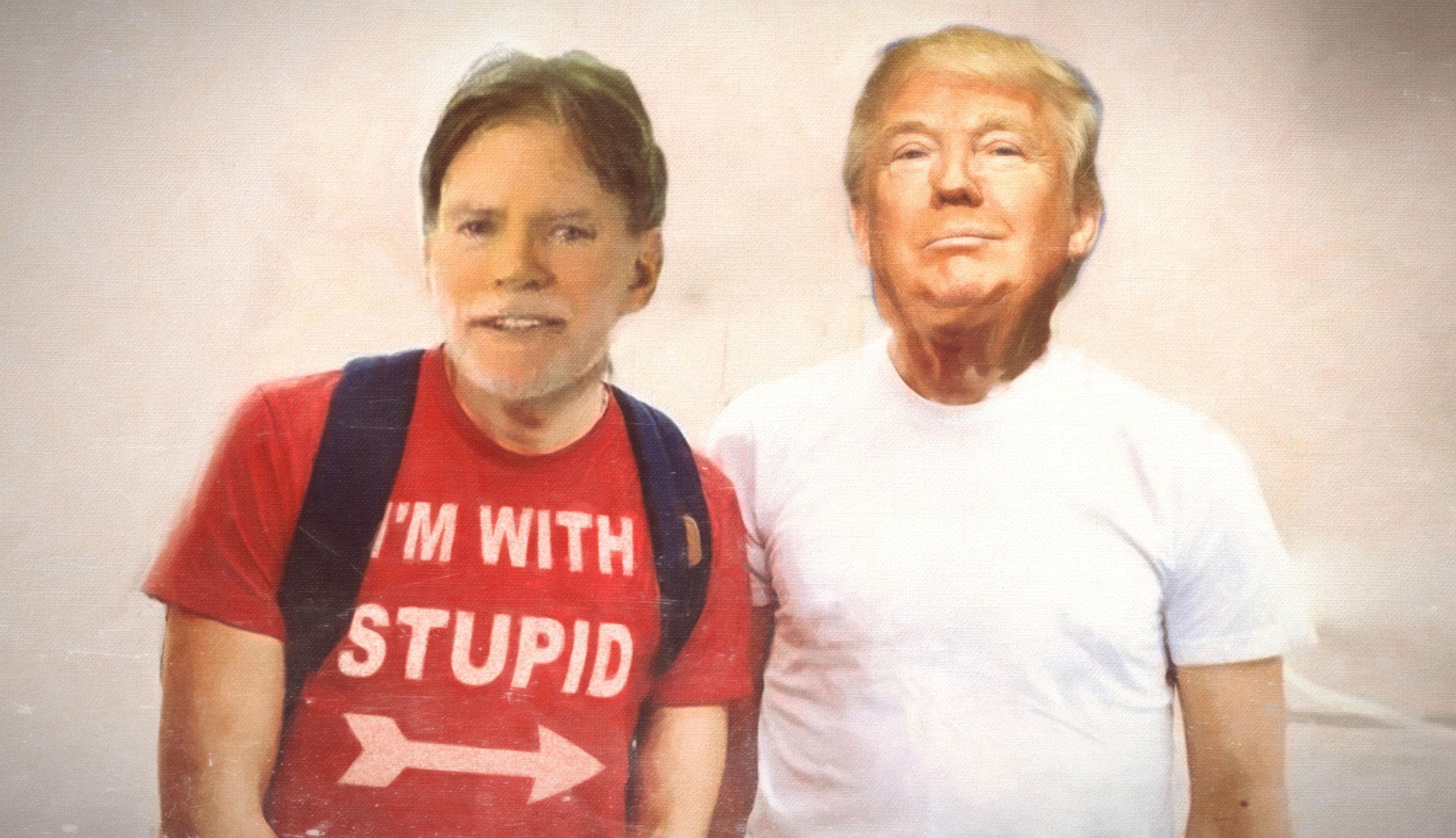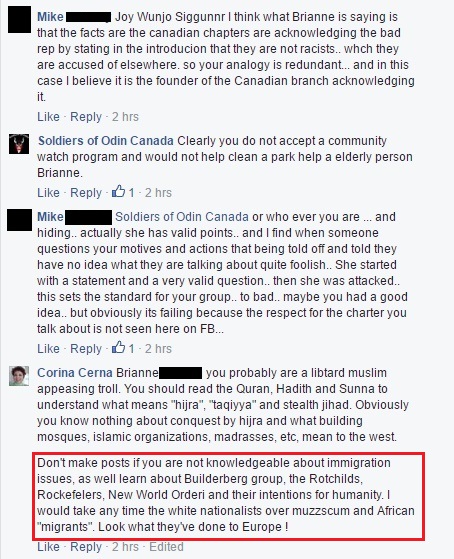No More Lesser-EvilismA strategy of “lesser evilism” won’t prepare the Left for the long fights ahead.by
James Robertson
In mid-August, the Working Families Party (WFP) became the latest organization on the US left to throw its backing behind the Democratic Party’s presidential candidate, Hillary Clinton.
An early supporter of Bernie Sanders’s insurgent challenge, the WFP justified its endorsement of his rival by invoking the fear of a Donald Trump presidency — which, they noted, “would not only put an unqualified, know-nothing, narcissistic, authoritarian jerk in the White House, it would empower the most malignant tendencies in American society.”
The WFP is not alone in fearing Trump — his outlandishly racist and misogynistic rhetoric has alienated huge swathes of voters. Indeed, as several pundits have noted, Clinton now seems to be employing a “run out the clock” strategy, ignoring her growing list of scandals on the assumption that Trump’s unpopularity will deliver her to victory.
While polling suggests that a Trump win is unlikely, it would be premature to assume Clinton has the election in the bag. Trump has already shown himself adept at exploiting widespread anti-political sentiment, and his independence from DC kingmakers and the donor class gives him the flexibility to pivot quickly when needed.
Still, even accepting that Trump’s chances in November are potentially better than currently predicted, it is far from clear that a strategy of “lesser evilism” will prepare the Left for the long fights ahead.
The premise of lesser evilism — an electoral strategy frequently employed by progressives to the left of the Democratic Party — is quite simple: given the limited choices on offer in a two-party system, the Left should work to elect the least-damaging of the two options. The strategy is historically counterpoised to calls to break with the Democrats and use elections to build an independent third party.
Critics of lesser evilism tend to emphasize the long-term consequences of subordinating labor and social movement campaigns to the election cycle, and warn that softening criticism of the “lesser” evil necessarily compromises the Left’s demands and political clarity. The dismantling of the antiwar movement in the run-up to Obama’s 2008 victory stands as a particularly damning example of the strategy’s flaws.
This election year, however, the decision to endorse the Democratic candidate is especially worrisome. At a moment when anti-establishment figures are finding unexpected support and upsetting the electoral status quo, the idea that the Left should be throwing its weight behind the establishment candidate par excellence is short-sighted.
Clinton’s close ties with big capital, the defense industry, and the neoconservative establishment in DC are so disconcerting as to make any talk of her posing a lesser danger misguided.
It’s better to think of the choice in November as one not between a greater and a lesser evil, but between two different threats. Preparing for the battles ahead means looking beyond November and assessing the different risks entailed in the two likely outcomes.
The Importance of Social ForcesA risk assessment of a Clinton or a Trump presidency cannot limit itself to each candidate’s stated policies or rhetoric on the campaign trial. The DNC platform, for instance, has many laudable planks thanks to the efforts of the Sanders campaign. But the platform isn’t binding, and runs counter to the same vested interests that have funded Clinton’s campaign. It would have very little bearing on her presidency.
To predict how Clinton or Trump would act in office, it is instead necessary to examine the more durable social forces propelling the two candidates.
By “social forces,” I mean more than just an “electoral base.” Social forces are organized associations, institutions, or movements in society that act to pursue a set of goals over a long period of time. They operate beyond the election cycle and, as a result, are a more predictable measure of a candidate’s likely trajectory once in power.
One of the most astounding aspects of Trump’s candidacy has been the paucity of broad social forces he’s been able to attract.
While a handful of Republican-aligned mainstays have gone along with him — former New York City mayor Rudy Giuliani, the National Rifle Association, and, to a lesser extent, the Wall Street Journal editorial page — Trump has alienated many of the groups that Republican candidates typically rely on for funding and voter mobilization.
He has been shunned by the Bush dynasty, Mitt Romney, and Michael Bloomberg, and was described as a “national security risk” by fifty GOP officials. The network of neoconservative officials and think tanks that played a key role in George W. Bush’s administration have rejected Trump. The Koch brothers and the Tea Party–aligned Club for Growth have both spurned Trump. Even former donors to Ted Cruz’s primary campaign have jumped ship, preferring to fund Clinton over the GOP nominee.
The Chamber of Commerce — the key institution of US capital and a historic supporter of the GOP — might support Clinton instead. Likewise, the flow of money from hedge funds and recent outrage by financial leaders at Trump’s support for the Glass-Steagall Act (now part of the Republican Party’s official platform) strongly suggests that Wall Street is backing Clinton.
In short, very few entities of social magnitude lie behind Trump’s campaign. His attacks on big finance and free trade, his disparaging comments about the Iraq War, and his unconvincing adoption or outright rejection of conservative social values have alienated the bulk of the right wing of the US political and economic establishment.
Although Trump has garnered vocal support from anti-immigration lobby groups and endorsements from far-right parties, including the KKK and the American Nazi Party, these marginal forces have played little to no role in his rise to power.
Trump’s rise has overwhelmingly been rooted in an amorphous anti-political sentiment in US society. Rather than a clear and coherent articulation of reactionary social forces, his campaign has used right-wing nativism and anti-elite rhetoric to tap into this disgust at the country’s political and economic institutions.
While Trump’s approach has paid off among a specific electoral base (white, male, middle income), it is not the political expression of a durable social force in US society. And that likely won’t change: he hasn’t shown any signs he’s trying to organize this formless electoral pool into a coherent organized movement.
The weakness of Trump’s backing among broader social forces is significant; without this rootedness in society, a Trump presidency would be weakened from the get go, undermined by Democrats and Republicans alike, and constantly under pressure to make concessions to the establishment causes that Trump has pitted himself against.
Trump in the White HouseOf course, the anti-politics that Trump represents would not be without its dangers in power. There are three key threats his victory might pose and for which the Left needs to be prepared.
First, a Trump victory could give marginal extremists greater confidence to more actively and publicly pursue their agendas.
It’s important not to equate Trump’s success with broad social support for such extremist elements. Virulent rhetoric notwithstanding, Trump’s anti-political appeal means that his campaign reaches well beyond white nationalist and anti-immigrant circles (although it also includes them).
But just as many on the Left have seen Trump as confirmation of their fears of a right-wing resurgence, so too has the far right projected onto him their hopes and aspirations for wider social relevance. If Trump wins in November, their false confidence could well lead them to undertake more audacious acts of violence.
Still, the aftermath of the Brexit referendum in the UK is instructive here. While the vote to leave the EU certainly gave far-right and fascist street groups like Britain First and the English Defence League the confidence to launch a spree of racist attacks against immigrant communities, there isn’t any evidence these groups have actually grown in membership or influence. Despite a spike in online visibility, the far-right public demonstrations since the vote have been small and vastly outnumbered by anti-racist forces.
Meanwhile, the right-wing political parties that were presumed to benefit from Brexit (first and foremost UKIP, but also the hard-right faction within the Conservative Party) have been consumed by internal crises.
The danger of a Trump win, in other words, lies not so much in a widespread social resurgence of the far right, but in the violent acts these marginal groups might feel emboldened to carry out, overestimating the level of public support they enjoy.
Second, a beleaguered Trump presidency could push draconian measures that command bipartisan support (most likely around immigration) to distract from its weak authority.
In Australia, for instance, the center-left and center-right parties have responded to the erosion of the two-party system by trying to out-do one another on “border security.” That the issue of immigration is a low concern for the Australian electorate highlights the contemporary disconnect between the political class and society.
Third, there is the possibility that once in power, Trump might retreat from his anti-political approach and seek to mend the rift in the GOP by seizing on a specific “unity” issue. The “law and order” theme — which dominated the Republican convention and has been used consistently as a campaign talking point — could provide the basis for such a rapprochement. If it did, we might see an administration even more proactive in its support for the police and in its repression of groups like Black Lives Matter.
However, given the number of bridges Trump has burned over the primary campaign, and his hostility to some orthodox Republican policies, the chances that a Trump presidency could achieve such a unification are quite slim. More than likely, Republicans would try to preserve their ties with the political and financial establishment by distancing themselves from Trump and his agenda.
Clinton in the White HouseThe balance of forces is quite different in the Democratic Party. After taking a brief detour to the left to defeat her upstart rival, Clinton has moved right since the Democratic convention, eager to win over Republican voters and donors alienated by Trump. Many have obliged. Her campaign now finds itself with the backing of an astoundingly heterogeneous set of social forces, from the finance sector, pharmaceutical industry, and Google to trade unions and the Working Families Party.
With the support of some of the most powerful political and financial forces in the US establishment, a Clinton presidency would operate with far greater coherency and authority than anything Trump would be able to cobble together. Her administration would be much better-positioned to project its power into society, preserve a political consensus around its preferred policies, and narrow the political space for alternative demands.
And there should be little doubt about how Clinton would use such authority — hedge funds and big pharma don’t dump millions of dollars into a campaign without expecting something in return.
Her stint as secretary of state also gives us some indication of what to expect out of a Clinton presidency. In a word: hawkishness. Clinton successfully lobbied for NATO air strikes against Libya and has actively pursued a similar response in Syria and Iraq. She has also called for the US to “intensify and broaden” its military efforts in Syria, proposing expanded air strikes and more ground troops in the war against ISIS.
Nor should we expect this hawkish approach to weaken in the White House. As Daniel Larison has observed:
The pressures and powers that come with the presidency encourage and allow a candidate to become even more hawkish once in office, and Clinton won’t be immune to those effects. More to the point, she won’t want to be immune to them . . . There is good reason to assume that being in the office and being subjected to the endless demands to “do something” about each new conflict that comes along will exacerbate her tendency to favor more aggressive measures.
Within Clinton’s first term, we would likely see deeper US involvement in Syria and Iraq, a more intransigent and aggressive posture toward Russia, and a quick deterioration of US-Iranian relations.
That some on the Left seem willing to label this a “lesser evil” seems quite short-sighted; a Clinton presidency would likely make the world a more dangerous place, further destabilize the Middle East, create a breeding ground for ISIS and their ilk, and increase the flow of refugees from Syria and Iraq.
The second threat that comes with a Clinton White House relates to Israel and Palestine. Given Clinton’s long-standing support for Israel’s policies of occupation, as well as her strong ties with pro-Israel lobbyists like Haim Saban, we should expect her to forcefully back the country against its growing number of critics.
First and foremost, this will mean an attack on the most effective wing of the Palestine solidarity movement: the Boycott, Divestment and Sanctions campaign (BDS). Already Clinton has made opposition to BDS an important plank in her campaign. In May, in response to requests from Israel advocacy groups, she publicly called on the United Methodists to reject a further boycott from Israeli companies. And in her speech to AIPAC earlier this year, she vowed to take action against the BDS movement, linking it to what she described as a global rise in antisemitism.
Over the past several years the Palestine solidarity movement has experienced a wave of repression — from restrictions on campus student groups, to campaigns persecuting professors, to efforts to silence or punish supporters of BDS by university administrations and, in the case of New York, New Jersey, and California, even state governments.
Under a Clinton administration, these efforts to repress and silence the Palestine solidarity movement would likely broaden in scope and intensity.
Third, we should expect the national-security state — built up under George W. Bush and significantly expanded under Obama — to be further strengthened with Clinton as commander in chief.
Not only has Clinton faithfully served in an administration that has “prosecuted more individuals under the Espionage Act of 1917 . . . than all previous administrations combined,” she has vocally condemned whistle-blowers Chelsea Manning and Edward Snowden.
Even during the primary, with Sanders pressuring her from the left, Clinton showed little compulsion to distance herself from her record on civil liberties. In fact, after the San Bernardino attacks, she called for an “intelligence surge,” particularly government surveillance of social media. The deep ties between Clinton, the State Department, and Google suggest she is well-positioned to greatly expand the scope of the national security state.
Beyond NovemberIn the current political moment, there is no lesser evil, merely different threats.
A Trump administration would be weak and disorganized, but also prone to haphazard attacks on already-vulnerable communities. A Clinton presidency would be confident, buttressed by a powerful alignment of establishment forces and capable of projecting its authority to shore up the status quo.
The Left needs to be prepared for either scenario. And this should go well beyond the abstract slogan “build the movements.” We need to think strategically about what we’ll need to prioritize, and where to pool our resources.
In the case of a Trump presidency we will have to put our efforts into building antiracist struggles around immigration, Islamophobia, and police violence. But we will also have to avoid being distracted by Trump’s rhetorical outrages; the focus must be on the concrete actions of the state and Trump’s more extreme followers, not on his Twitter feed.
In the case of a Clinton victory, we will desperately need a real anti-war struggle — one informed by, but one that can also surpass, the movement against the Iraq War.
Given the US antiwar movement’s effective absence, the likelihood of a Clinton presidency and the near certainty that her administration will pursue further wars abroad and expand the national-security state at home should be a source of deep concern.
Assuring ourselves that Clinton is a “lesser evil” leaves us ill-prepared to organize an effective opposition to such polices. We need to start preparing for the dangers on the horizon.














